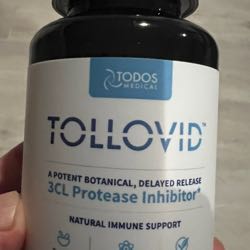Company News Amarantus Announces Exclusive Option
Post# of 30081

Amarantus Announces Exclusive Option Agreement With Georgetown University to License Patent Rights for Blood Based Biomarkers for Alzheimer's Disease
Download PDF
SAN FRANCISCO and GENEVA, Jan. 15, 2015 (GLOBE NEWSWIRE) -- Amarantus BioScience Holdings, Inc. (OTCQB:AMBS), a biotechnology company focused on the development of novel diagnostic tests in neurology and therapeutic products in the areas of neurology, psychiatry, ophthalmology and regenerative medicine, announced that it has executed a one-year, exclusive option agreement with Georgetown University to enter into a license for the patent rights related to certain blood based biomarkers for memory loss that Georgetown University and University of Rochester jointly own. Amarantus will be required to achieve timely milestones including providing Georgetown with development and commercialization plans for the biomarkers, share information related to Amarantus' diagnostic assets, CLIA validation of biomarkers, recruitment of a senior executive to lead Amarantus' diagnostics division and other requirements as defined in the agreement.
"The evaluation of the memory loss-related biomarkers from Georgetown University and University of Rochester are part of our continuing plan to be the world's premier Alzheimer's blood-based diagnostic company in the world," said Gerald E. Commissiong, President & CEO of Amarantus. "There are six patents covered in the agreement with Georgetown University. The technologies are based on metabolic, genetic and exosomal biomarkers. We believe these may hold additional potential for identifying distinguishing factors in dementia and Alzheimer's disease that will be complementary to our current cell cycle dysregulation platform with LymPro® Test. With the potential addition of these biomarkers to our Alzheimer's diagnostics portfolio, we are positioning ourselves to be able to serve the pharmaceutical clinical trial community with all three modalities (cell cycle dysregulation, lipidomics and exosomes) that will streamline their efforts to recruit and monitor subjects enrolling in Alzheimer's therapeutics clinical studies, in addition to bringing to market blood diagnostics for Alzheimer's disease that will help individuals and nations implement robust screening initiatives to accurately diagnose Alzheimer's disease."
"The preclinical state of the disease when one is asymptomatic offers a window of opportunity for potential disease-modifying intervention such as medications," stated Howard Federoff, MD, PhD, Executive Vice President for Health Sciences at Georgetown University Medical Center and Executive Dean of Georgetown's School of Medicine, and one of the inventors of the technology. "It will be critical to have biomarkers such as these for large-scale screening to identify at-risk individuals in order to test therapeutic agents that might delay or prevent the emergence of the disease. This will ultimately be hugely important to patients and their families."
During the option period, Amarantus has been granted rights to internally evaluate the biomarkers. The biomarkers are based on technologies entitled, "Blood Based Biomarkers for Memory Loss" developed in the course of research performed by Drs. Howard Federoff, Massimo Fiandaca, Amrita Cheema, Yuriv Gusev, and Xiaogang Zhong at Georgetown University and Dr. Mark Mapstone at University of Rochester.
 (0)
(0) (0)
(0)